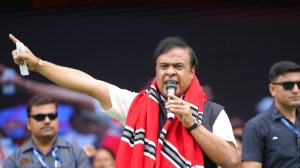Office of Profit: SC questions Centre
The Centre on Tuesday had to face some tough questions posed by the Supreme Court on its motive behind bringing an amendment to the Office of Profit law...

The Centre on Tuesday had to face some tough questions posed by the Supreme Court on its motive behind bringing an amendment to the Office of Profit law, allegedly for protecting some individuals from being disqualified from the membership of Parliament.
“It is the office which is exempted not its holder (under the law). So, when you are exempting office of one development council, then similar other offices should also be exempted. You have virtually exempted the holder but not the office,” said a Bench, headed by Chief Justice K G Balakrishnan and also comprising Justices R V Raveendran and J L Panchal. Citing the case of a state Khadi board, the Bench asked, “Why only the Tripura Khadi Board has been exempted when every state has such a board?”
The remarks raised by the Bench are an echo of the views of former President A P J Abdul Kalam, who had sent back the Bill to the Parliament for reconsideration. Citing certain pertinent legal issues, on May 31, 2006, Kalam had returned the Bill without signing it.
The Centre defended itself by contending that it was an ongoing exercise in which more amendments will be made to the law to exclude more offices from the Office of Profit list. “A joint committee comprising eminent persons has been appointed to look into the issue and it is looking to evolve a criteria on which it could be applied,” Additional Solicitor General Gopal Subramanium said, adding, “The Parliament is alive to the fact that the issue is to be resolved so that there is uniformity. It is an ongoing process and it does not mean that the first stage of exempting 55 offices is bad.”
Responding to this, the Bench asked, “You mean to say that exempting 55 offices is like temporary injunction till the final order.”
It also questioned the application of the amendment with retrospective effect and said, “This is the first time that it has been done. Show us any case where it was done earlier.”
To which, the Government senior law officer submitted that in 1951, when the amendment was brought in the earlier law on OoP, it was applied with retrospective effect from January 26, 1950. As he faced a volley of question from the Bench, the ASG argued that the purpose of the law was not to disable MPs from working for the public, which they were supposed to do being their representatives.
The amendment had come under scrutiny of the Supreme Court after two petitions were filed challenging it, wherein it was alleged that it had been introduced to protect 40 selected MPs / MLAs from disqualification.
Photos


- 01
- 02
- 03
- 04
- 05





























